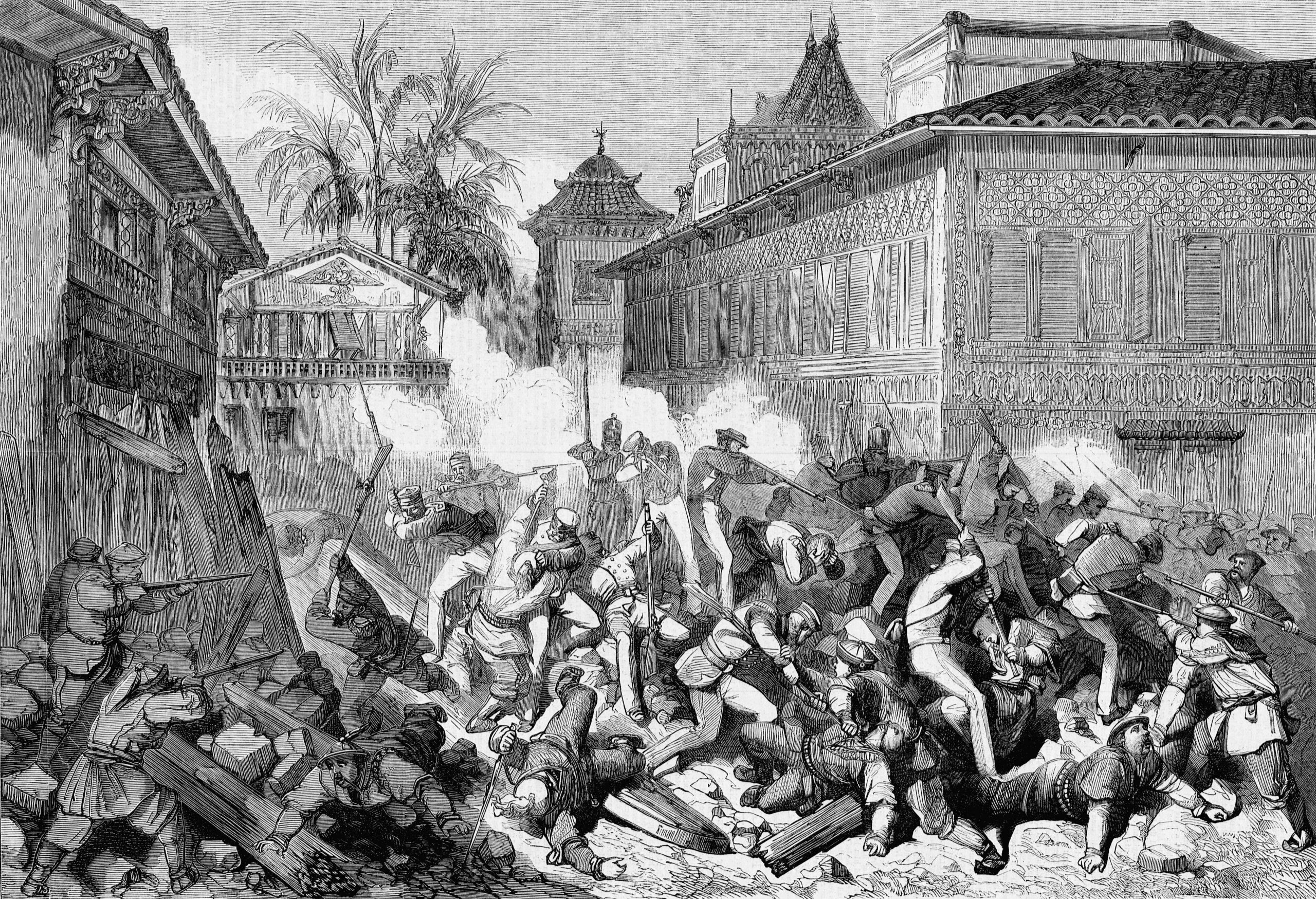In the mid-19th century, China witnessed one of history’s deadliest civil wars, yet it remains largely unknown to the Western world. The Taiping Rebellion (1850-1864) claimed an estimated 20-30 million lives, making it bloodier than World War I.
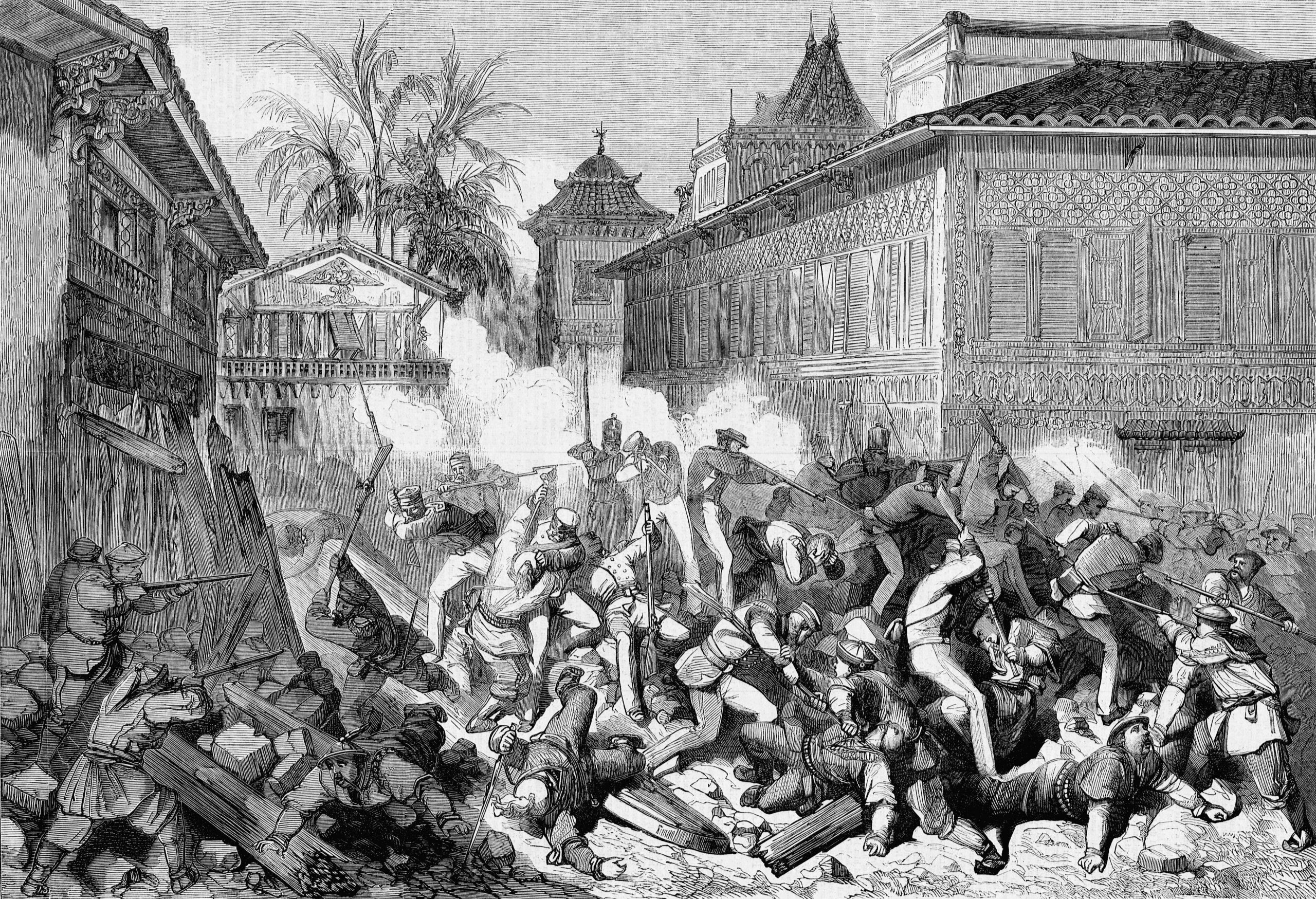
The Attack on Canton during the Taiping Rebellion. Credit: History.com
The rebellion began with Hong Xiuquan, a failed civil service examination candidate who, after experiencing mystical visions, declared himself the younger brother of Jesus Christ. Hong established the God Worshipping Society, which quickly evolved into a powerful movement challenging the ruling Qing Dynasty.
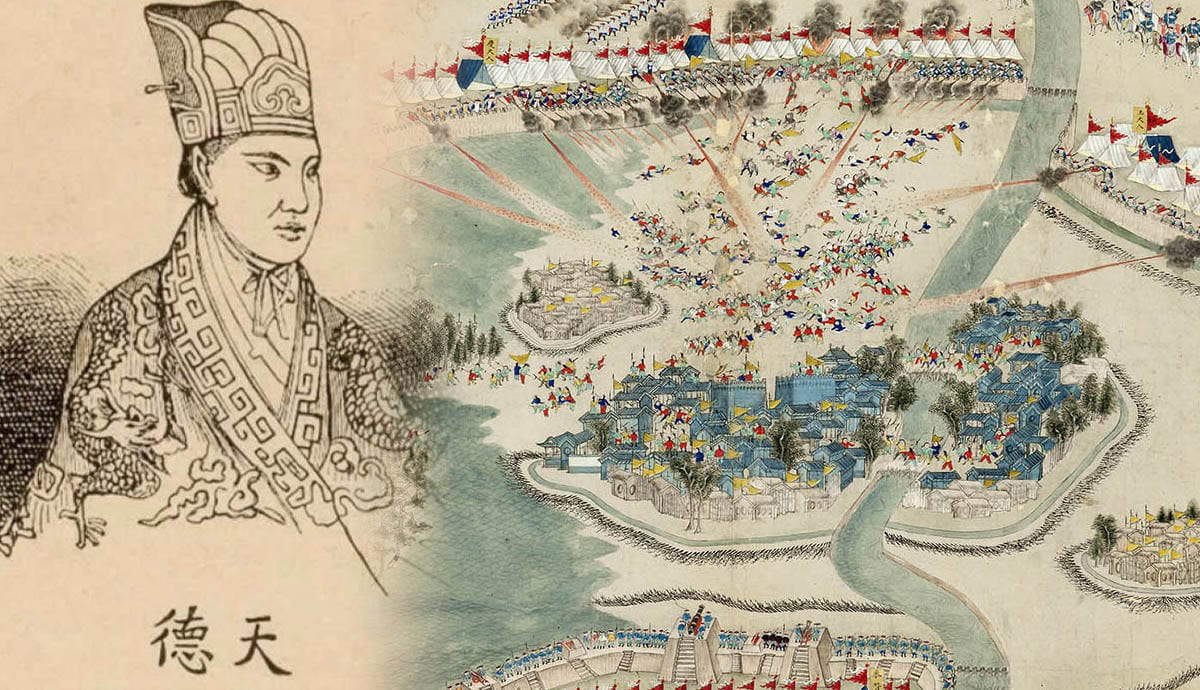
Contemporary drawing depicting Hong Xiuquan and battle scenes. Credit: The Collector
The Taiping forces captured Nanjing in 1853, establishing it as their capital – the ‘Heavenly Kingdom.’ Their radical social reforms included the abolition of private property, equality between men and women, and the prohibition of foot binding, opium, and slavery.
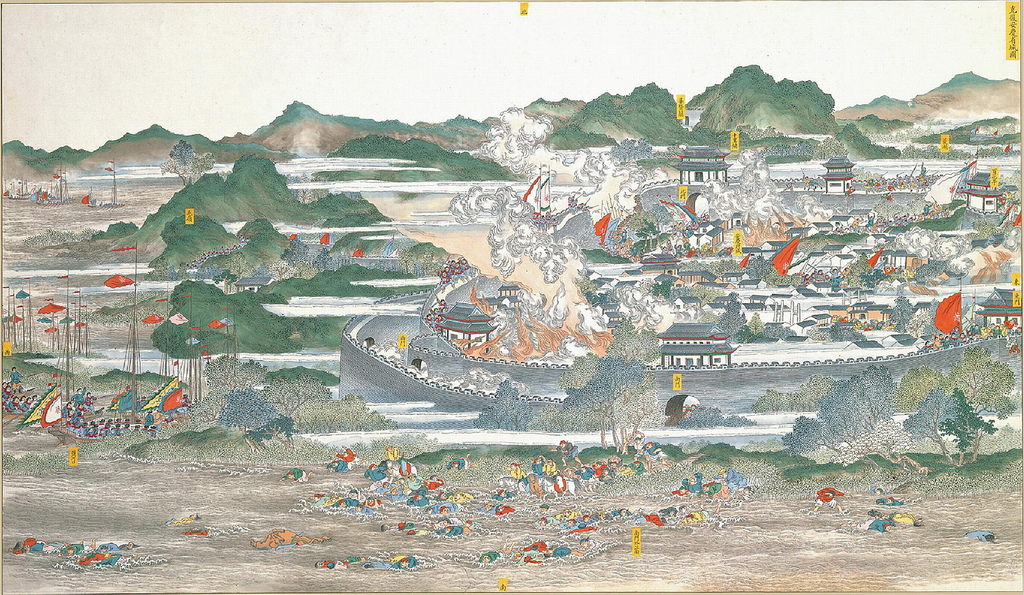
The battle for Anqing Province. Credit: Wikimedia Commons
The rebellion’s eventual suppression came at an enormous cost. The combination of warfare, famine, and economic disruption devastated China’s heartland. The Qing Dynasty, though victorious, was severely weakened, contributing to its eventual fall in 1911.
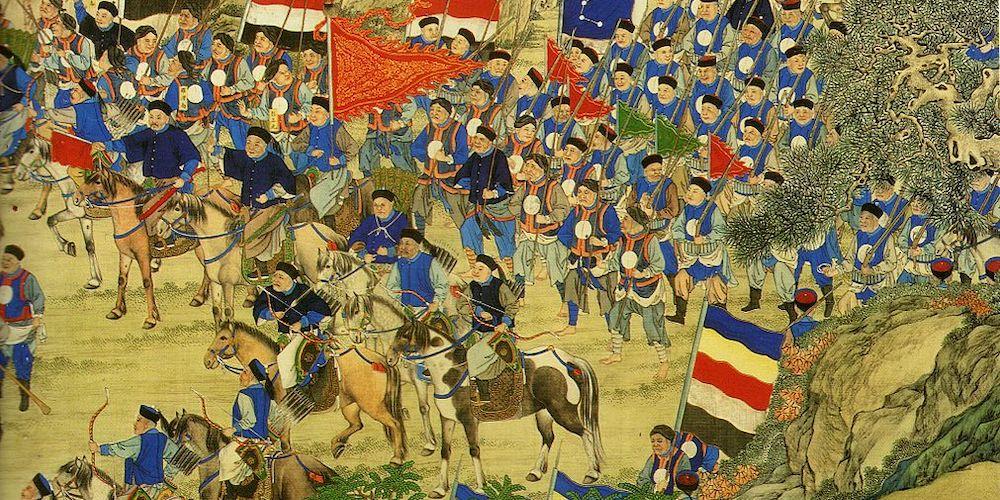
Final suppression of the Taiping forces. Credit: CEPR
References:
History.com – Taiping Rebellion – link
Encyclopedia Britannica – Taiping Rebellion – link
Categories: Asian History, Military Conflicts, Religious History, War History
Tags: 19th Century, Chinese history, Civil War, Hong Xiuquan, Military History, Qing Dynasty, Religious Movement
Religion: Christianity/Traditional Chinese
Country of Origin: China
Topic: Historical Conflict
Ethnicity: Han Chinese

